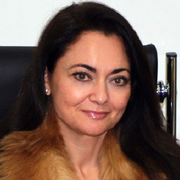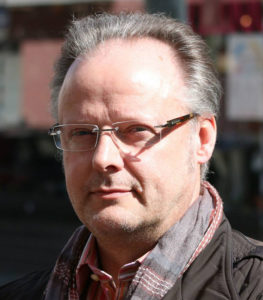23 November at 15:00 (GMT)
Duration: 2 hrs

Gloria Corpas Pastor
Language Technology for Interpreters: the VIP Project
Nowadays, there is widespread agreement that high-quality interpreting is contingent upon the preparation of the assignment in advance. According to Fantinuoli (2017: 24): «Preparation has been proposed in the literature as one of the most important phases of an interpreting assignment, especially if the subject is highly specialised». Interpreting requires efficient use of highly domain-specific terminology (in all working languages involved) with very limited time to prepare new topics. Besides, interpreters are frequently faced with variation in terminology, especially due to the fact that they are dealing with spoken language. For these reasons, corpus-based terminological preparation is rapidly gaining ground among professional interpreters and interpreter trainers (Pérez Pérez, 2017; Xu, 2018; Fantinuoli and Prandi, 2018; Gaber, Corpas Pastor and Omer, 2020/in press, etc.).
However, collecting corpora and other resources for interpreting is not always an easy task. Leaving aside some negative attitudes towards technology and/or low degrees of technology uptake, interpreters usually experience an acute shortage of relevant resources and written materials. In contrast with heavily technologised translation environments, interpreters have a much more restricted choice of tools and resources at their disposal (cf. Corpas Pastor, 2018).
This workshop will provide a hands-on experience to interpreters who wish to experiment with the VIP system in order to upload or compile their own corpus, create their bilingual glossaries and practice before a given interpretation job (domain-specific terms and multiword units, numbers, etc.). The current version of VIP supports English and Spanish.
Participants will be granted free access to the VIP platform. As part of the workshop, we will tap into interpreters’ technology awareness (prior and after the practical sessions), and results will be discussed on-site.
The workshop is also open to translators who wish to work (or already do) with corpora and corpus-based terminology and phraseology.
References
Corpas Pastor, Gloria. (2018). “Tools for Interpreters: The Challenges that Lie Ahead”, Current Trends in Translation Teaching and Learning E, 5, 157-182.
Gaber, Mahmoud, Corpas Pastor, Gloria and Ahmed Omer (2020/In press). “Speech-to-Text technology as a documentation tool for interpreters: A new approach to compiling an ad hoc corpus and extracting terminology from video-recorded speeches”. Trans.
Fantinuoli, Claudio (2017): «Computer-assisted preparation in conference interpreting», Translation & Interpreting 9/2, 24-37.
Fantinuoli, Claudio and Bianca Prandi (2018). “Teaching information and communication technologies: a proposal for the interpreting classroom”, Transkom 11/2, 162-182.
Pérez Pérez, Pablo (2018). “The Use of a Corpus Management Tool for the Preparation of Interpreting Assignments: A Case Study”, The International Journal for Translation and Interpreting Research, 10/1 137-151.
Xu, Ran (2018). “Corpus-based terminological preparation for simultaneous interpreting”, Interpreting, 20/1, 33–62.
BA in German Philology (English) from the University of Malaga. PhD in English Philology from the Universidad Complutense de Madrid (1994). Professor in Translation Technology at the Research Institute in Information and Language Processing (RIILP) of the University of Wolverhampton, UK (since 2007), and Professor in Translation and Interpreting (2008). Published and cited extensively, member of several international and national editorial and scientific committees. Spanish delegate for AEN/CTN 174 and CEN/BTTF 138, actively involved in the development of the UNE-EN 15038:2006 and currently involved in the future ISO Standard (ISO TC37/SC2-WG6 “Translation and Interpreting”), where she is in charge of ISO/AWI 20539 (Translation, interpreting and related technology – Vocabulary) and ISO/DIS 18841 (Interpreting services – General requirements and recommendations). Extensive experience in evaluation programmes (institutional evaluation, verification, monitoring, accreditation). President of the Evaluation and Verification Commission of the Arts and Humanities field at Fundación para el Conocimiento Madri+d and member of the specific committee for doctorate programmes at AQU. Evaluator for ANECA and other evaluation agencies (AQU, ACCUEE, DEVA). She also collaborates regularly as evaluator for the Spanish Ministry in various R&D and youth employment programmes. She has recently been awarded the “2017 Farola Award” in the field of New Technologies, given by the Andalusian Women’s Institute, Junta de Andalucía. President of AIETI (Iberian Association of Translation and Interpreting Studies, 2015-2017), Vice-President of AMIT-A (Association of Women in Science and Technology of Andalusia, 2014-2017), she is currently Director of the Department of Translation and Interpreting of the University of Malaga, Board member and member of the Advisory council of EUROPHRAS (European Society of Phraseology) and member of the Scientific council of AIETI. In addition, she belongs as a life member to the Presidential Committee of AIETI, which is an advisory body of the association.
24 November at 14:00 (GMT)
Duration: 1 hr 30

Bert Wylin
KU Leuven
T&I Teaching and Assessing in a Hybrid Environment: hands-on in two university use cases
This workshop will be a hands-on workshop.
You’ll receive a login and password to connect to real online platforms, liveQ and assessmentQ from Televic Education.
In the workshop we’ll look at real examples of exercises and exams being used at the KU Leuven university for training and evaluating translators and evaluators.
Open to students and teachers and whoever wants to train, evaluate, recruit or select translators and interpreters in an online environment!
Bert Wylin has both an academic and a business profile. He works at the KU Leuven, since 1993, first at the Continuing Education service, where he started up the distance education department and the Open University.
In 1996, he drove the Education Innovation Centre, leading to a growing expertise in integrating technology and the Internet in university education. In 1997 he co-wrote and published the first Dutch-language book about the integration of Internet in the classroom and in education.
In 2001, he founded a KU Leuven university spin-off company, developing and servicing educational technology projects. In 2008 this company merged with another company to become the actual Televic Education.
Today, Bert is responsible for all e-content projects, for e-assessment and e-learning.
23 November at 17:00 (GMT) - Part 1
25 November at 18:30 (GMT) - Part 2
Duration: 1 hr 30
Duration: 1 hr 30

Jerzy Czopik
and BDÜ Vice-President
REGEX – a kind of magic? Why using regular expressions may help translators in their profession
Regular expressions appear to be some kind of magic. When you see them for the first time, it all seems to be completely abstract and hard to understand. But as with everything else, you can learn. It is not even that hard. Learning just a few basic features can make your work much easier and faster.
Some examples:
When translating a text from German into English, you need to change the way numbers are written. Or you have a text translated into British English and you need to change the dates there to the American notation. Both these operations can easily be done using regular expressions.
Another example is quality checking of your text after having translated it. Using regular expressions, you can check many items, e.g. the presence of a non-breaking space between numbers and units of measurement, and many others.
Regular expressions are also especially useful for tagging content. This is not only necessary when dealing with XML formats, but quite often you will find HTML tags in text when translating Excel files for example.
In this workshop I would like to show the participants some basics and help them to use simple regular expressions in their work.
Born in Cracow, where he studied mechanical engineering until moving to Germany in 1986. Living in Dortmund from then he finished his engineering studies in Germany. In 1990 he started to translate, to begin his specialization in technical translation in 1991. Since 1992 sworn translator and interpreter for German and Polish.
Since many years he uses CAT tools. Self-taught user, who in due course became a trainer for SDL software. Beside this he runs a webinar series called “Ask Dr. Studio” for the BDÜ (the German federal association of translators and interpreters). Since April 2018 he is vice president of the BDÜ.
Additionally, Jerzy is also auditor for LICS (Language Industry Certification System, awarding ISO 17100 certificates). Since 2010 together with his wife he owns an EN 15038 / ISO 17100 certificate.
25 November at 15:00 (GMT)
Duration: 2 hrs

Denis Dechandon
European Publication Office

Maria Recort Ruiz
International Labour Office
Integration of Semantics and Metadata
In a time when technological advancements foster the public services’ modernisation and support rapidly growing amount of information exchanges between public administrations, across borders and sectors, the need for interoperability is bigger than ever and can be subdivided into four layers (1) (legal, organisational, semantic and technical). To attain interoperability, the risk of creating new digital barriers for administrations, businesses, and citizens must be avoided and makes it necessary for public services to have a common terminology, to define stable interfaces between them, and to be aware of already existing solution building blocks that have been developed by others (2,3).
The tip of the iceberg for citizens and the majority of officials and public services’ staff members takes the form of bits and pieces of information, as disseminated through the internet and intranets, and is linked to basic expectations, i.e. their availability, findability, retrievability and reusability. In turn, this is basically linked to the creation of information, its understandability, portability, management and sharing.
These characteristics are located at a crossroads for drafters, linguists, publishers and information management specialists, who are all stakeholders in the authoring-translation-publishing (ATP) chain but who do not always perceive the need for a unified workflow with transversal features, like standard formats and metadata. Aware of this and of the necessary switch of paradigm, the Publications Office of the European Union and the International Labour Office initiated an informal collaboration in 2019 with the support of corpus and terminology managers, and information management specialists. Their basic objectives were to support a further quality and accessibility enhancement of terminology and semantic assets, to move to a systematic use of semantics and to build on linked data. The project was divided into various phases and the results of the first one and the objectives of the second one were presented at the 41st edition of the Translating and the Computer Conference.
Phase one focused on the alignment of a major EU semantic asset (EuroVoc) with ILO semantic and terminological assets (thesaurus and taxonomy, as well as the ‘gig’ economy glossary). This multifaceted process was eased using semantic web technologies and standards . Achieved results underwent a first theoretical assessment. The following phase was centred on the human assessment and validation by specialists of automatically generated mappings between concepts included in all four vocabularies. Additionally, possible asset quality improvements were identified during this process and led to concrete asset maintenance actions. It is to be noted that both organisations further contributed to the semantic and technical layers mentioned above through e.g. the use of a new alignment and data visualisation tool.
This process, subdivided in numerous steps, put into light limitations (full cross-understanding by linguists and information management specialists of specific standards, technical means, acceptance of the project and implementation of deliverables) but as well solutions and achievements of relevance for both organisations and communities of professionals.
While moving towards semantic web technologies proved to be a big step for the producers (authors and linguists), publishers, and the consumers of data, benefits appeared for all stakeholders of the ATP chain.
We propose to shortly present the purposes, steps and current results of this project, along with the technologies used, as a follow-up of the previous Translating and the Computer conference.
During this workshop, interaction with participants will be sought (mapping assessment and validation, switch of technologies, change management, scope of the switch for linguists, potential benefits for linguists and information management specialists). Last but not least, interested participants will be invited to join a group of interest (to be created on a social and professional network) to foster a centrifuge effect of the collaboration between linguists and information management specialists and, as such, support the terminological and semantic interoperability.
_________
(1) See 3. Interoperability layers | Joinup
(2) See About European Interoperability Reference Architecture (EIRA) | Joinup
(3) See Deliverable 06.02 Recommendations for commonalities and interoperability profiles of IoT platforms
(4) See 2018 UNGENEVAANNUALREPORT and Conclusions and recommendations of JIAMCATT 2017
